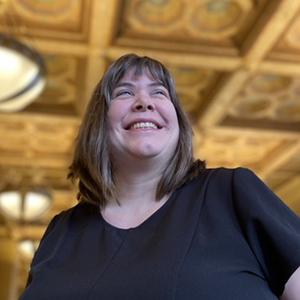- Took place Apr 27 – May 11, 2021
Note: Registration ended Monday, April 26th.
While many of the traditional resources found in libraries, archives, museums, and other cultural heritage institutions--books, photographs, objects--can survive for years with no intervention, digital content is much more fragile. Managing it requires ongoing care and preservation activities to ensure continued access far into the future. This online course introduces fundamental concepts for managing and preserving your digital content over time.
The course will:
- Provide an overview of digital content management activities
- Describe and identify specific actions to take at your organization
- Recommend additional sources to consult
Session 1: Identifying and Selecting Digital Content for Preservation (April 27, 10:00 AM - 12:00 PM)
In Session 1, the presenters address the importance of identifying what types of digital content you have within your institution, introduce steps and techniques to prepare a basic digital content inventory, and prepare you to address digital content that might come your way. The second half will focus on the process of selecting content for preservation from the body of digital content you hold. This process is known by different terms in different domains--what some might call appraisal in archives, selection in libraries, or curation in museums--but there are common principles and outcomes.
Session 2: Storing, Protecting, and Managing Digital Content for Preservation (May 4, 10:00 AM - 12:00 PM)
In Session 2 you will develop an understanding of how to store and protect your digital content over time. Methods for understanding your content include capturing, creating, and retaining metadata and are essential for protecting your digital content. Additional concerns include controlling who has access internally and externally to content, assuring fixity of files through error checking, ensuring that confidential information has sufficient access controls, and ensuring digital materials are included in disaster planning. Presenters will wrap up with an overview on the importance of preservation program planning, standards to be aware of, and present a few issues and challenges in making digital content accessible in the future.
Session 3 (Optional): Open Office Hours (May 11, 1:30 PM - 2:30 PM)
Do you have any remaining questions after taking this class? Want to see more examples or delve more deeply into a tool or program introduced during a session? Join us for an informal open office hour, hosted by the instructors.
Please Note
Scholarships are available to staff facing budget challenges during the COVID-19 pandemic. Contact Sara Ring (ring0089@umn.edu) for more information.
